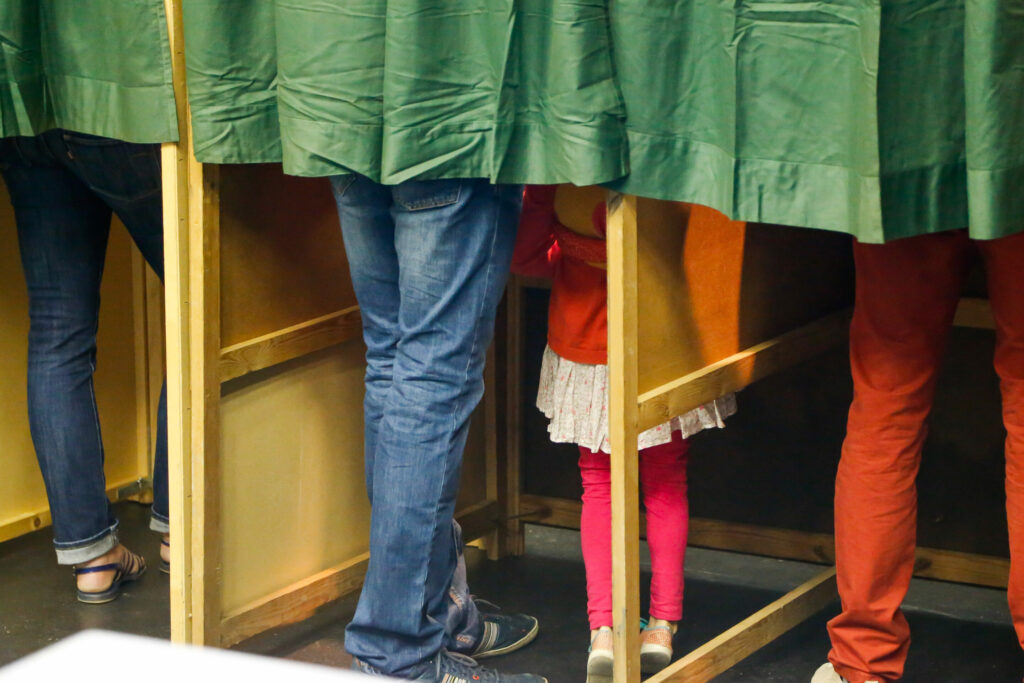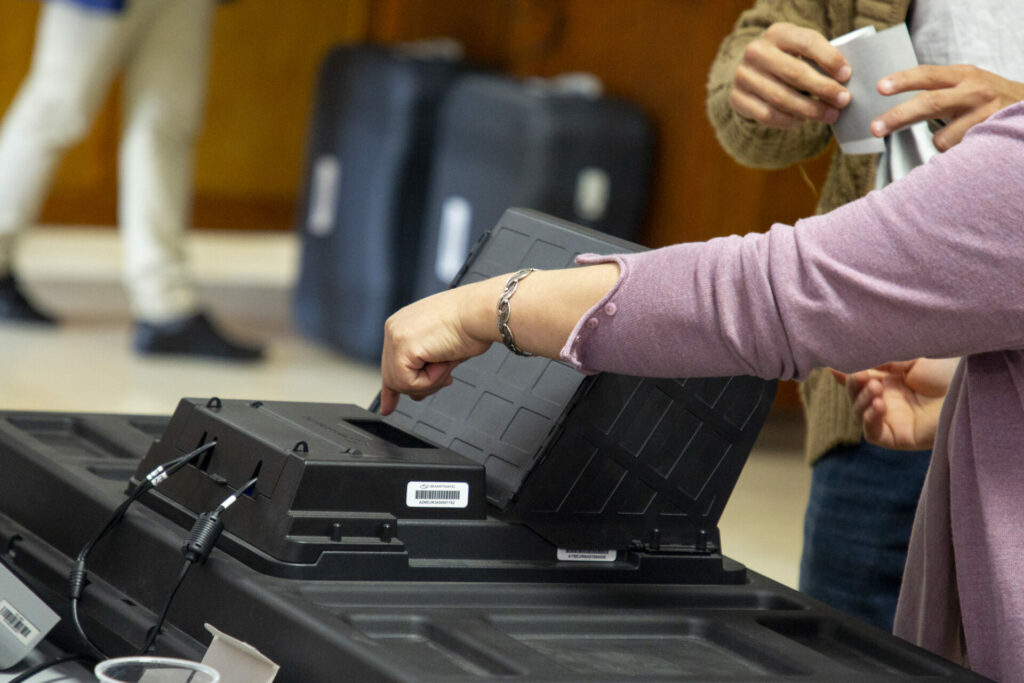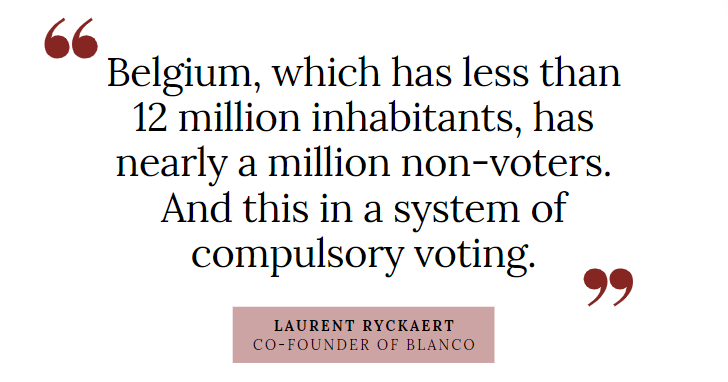With the elections taking place in less than two months, dissatisfaction with the state of Belgium's politics is growing more pronounced. But a new party is hoping to harness this frustration and amend Belgium's Constitution to allow empty seats in Parliament.
Elections often highlight public discontent with political parties and recent figures released by VRT and De Standaard's De Stemming showing that 34% of respondents don't currently feel represented by any political group or figure.
"One in three feel that no party, no politician currently in power represents them," Laurent Ryckaert, co-founder of Blanco, told The Brussels Times during a press conference in March. "With fewer than 100 days until the elections, that is the feeling of the Belgian population."
In the 2019 elections, there were 438,096 blank or invalid votes, 276,074 votes for a party that did not meet the electoral threshold (of 5%), and 949,076 citizens who did not show up to vote at all.
30 empty seats
"The number of no-shows is striking. It means that Belgium, which has less than 12 million inhabitants, has nearly a million non-voters. This in a system of compulsory voting," Ryckaert said. "That's huge."
In total, this means that 1,663,245 people are currently not represented in Parliament. These people have not given or do not want to give a mandate to those whose job it is to represent them.
"About one in five (20.36%) of people entitled to vote are currently not represented by any political party or politician in power," Ryckaert states. "That's equivalent to 30 of the 150 seats in the Chamber."
That is where Blanco comes in.

Federal, regional and European elections in Belgium, Sunday 25 May 2014. Credit: Belga/Bruno Fahy
Contrary to the extensive election programmes of other parties, Blanco has just one objective: making it possible to vote for an "unallocated" seat on ballot papers, alongside the regular parties and the option of casting a blank vote.
If Blanco manages to win a seat in the elections, it will submit a proposal to revise the Constitution to allow these unallocated seats – which in practice create empty places in Parliament. On all other issues, Blanco MPs will abstain from voting.
Once they have succeeded in adding an amendment to the Constitution, the party will dissolve itself. "We want to be as temporary as possible."
No majority, no opposition
A misconception among many voters in Belgium is that blank votes go to the majority. In reality, the seats are distributed among all parties – both majority and opposition – proportional to their electoral result.
"We think it would be a better way of working if people could opt for an unallocated seat," Ryckaert said. "Voters should be able to say that they are not convinced by the parties in the majority or those in the opposition, but instead want an empty seat to represent them."
Importantly, the aim is not to touch the blank vote as it exists today. Blanco does not want to translate electoral abstention into empty seats in the future. "We do not want to replace the blank vote for a Blanco vote. We just want an extra voting option on the ballot papers."
"So when voting, that would translate to a list of all parties that people can vote on, the option of casting a blank vote, and the additional option of voting for an unallocated seat," said Ryckaert. "That seat will not go to any MP. That means no salary, no assistant, no exit allowance, no pension."
This blank option would serve as a strong signal. "It explicitly says 'No party deserves my vote'", he explains. The abstention will no longer mean that a proportion of the vote defaults to other parties. "This will be the 'None of the above' option."
For Ryckaert and Lens, this is fundamentally a question of democracy, of the right to vote.
In the 2019 elections, many Flemish people voted for the Flemish far-right Vlaams Belang while many Walloons voted for the radical left PTB/PVDA. "But when asked afterwards, most of them said that it was a protest vote against the established parties."
"If their programme suits you and you vote by conviction, by all means: go for it. But not as a protest vote. That is where Blanco would come in. We want to be an alternative for people who do not want to vote for a party for the wrong reasons." This, Ryckaert believes, would ultimately result in better representation in the Parliament.
Just one seat for Blanco will be enough to bring this proposal to the Chamber, then it will be up to the parties to decide. "They will have to agree with it, or explain why they refuse adding an option that makes voting more democratic."
The thinking is that the threat of being replaced by an empty seat will motivate prospective MPs to really serve voters. "The people are not looking for 150 seats in the Chamber, they are looking for hard-working politicians and results from the political class."
Blanco's message to the people of voting age is: read the party programmes, make a choice, and above all, go out to vote.
Looking to better inform yourself before heading out the the polling station? Here is The Brussels Times' coverage of Belgium's voting system, the Belgian political parties and the 9 June elections in general.


